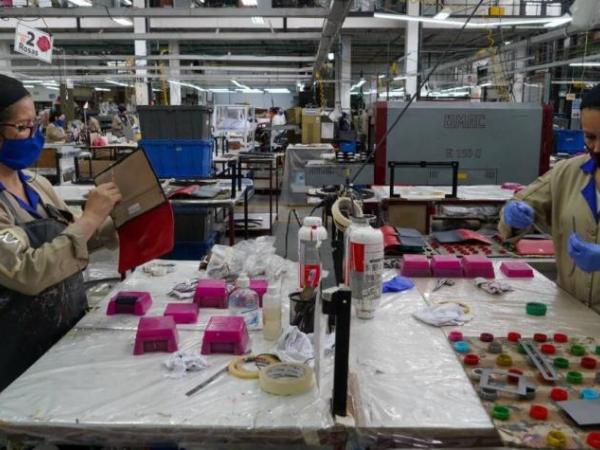Entrepreneurs in the commerce, restaurant and hotel sectors, which generate 24.8% of the total employment created in the country, think that if the labor reform is approved as it has been proposed so far in a draft, jobs are in danger due to the high costs they would have to assume.
(Read: Rappi and others, pay attention: this is what the labor reform says about platforms).
That is the essence of an analysis that the union delivered on the proposal and that included figures from Fedesarrollo on the impact of the reform on costsas well as the opinion of businessmen on what the proposed changes would represent for their businesses.
“If these initiatives are approved, companies would have to assume cost overruns that could exceed 20%, more if the working day is taken into account, which each year, starting in 2023, will subtract one hour until reaching 42 weekly. With the 16% increase in the minimum wage, labor costs this year, compared to 2022, would be between 35 and 40% higher”, he concludes.
Likewise, he says that with the announcements the business would face situations that could jeopardize its income and profits.
the survey shows that 85% of the companies carry out activities during the day, night, Sundays and holidaysTherefore, making hiring more expensive for those who work at night affects all businesses: restaurants, bars, accommodation, transportation, entertainment, and even surveillance and private security companies. When asked about the decisions they would make if labor costs increase, 86% of the answers are oriented not to create more jobs and, on the contrary, to reduce them, and consequently, to increase unemployment, says the report.
(Also: The merchants warning: labor reform would impact employment).
27% of those consulted would avoid hiring new staff as much as possiblewhile 18% indicate that they would try to replace labor with more automation of processes and technology.
Other 16% indicate that they would adjust work schedules seeking to reduce labor costs and 12% indicate that they would do without personnel not hired for an indefinite term. 9% of employers would choose to reduce night work shifts and 4% agreed that they would close some points of sale.
For the president of Fenalco, Jaime Alberto Cabal, It is disturbing that 25% of those consulted say that if labor costs become more expensive additional readjustments would be needed in the prices of what they sell, which would imply another pressure on inflation.
To concerns about reform, added caution in hiring for this year. 49% say that their payroll will be maintained, 33% say it will decrease and 18% say it will increase. In investments, 71% discard, reduce or postpone them. Not only do fears about the reform have to do with this, but other factors such as the increase in the cost of credit, political uncertainty, legal uncertainty, the expected reduction in profitability and the high inflation that persists. 29% maintain their plans for 2023.
(Keep reading: To what extent would the labor reform combat unemployment and informality).
The president of Fenalco proposes to the Government that the labor reform project be filed in the second semester, if there is the will of the Government that it be agreed. He believes that the time to consolidate it is very short, since the conversations in the Labor Policies Commission will begin until Monday and March 16 is the deadline that the Government has set to present it to Congress.
When commenting on aspects that the reform brings, Fenalco questions that it is more oriented to favor those who today enjoy formal work and no to the 3.4 million unemployed and more than 12 million informal. For example, he says that “eternal contracts” are generated since contracts cannot be terminated through the payment of compensation because a prior disciplinary process and authorization are required when there is just cause.
Likewise, it is included that in a dismissal without just cause the worker can choose between reinstatement with compensation or a higher compensation.
‘That employment is not affected’
Andi’s president, Bruce Mac Master, met with president Gustavo Petro to discuss various issues, such as labor and health reforms. He highlighted the Government’s desire to know the opinions of the business community and said that in labor matters, “for us the red lines are measures that end up affecting families, employment or that send people from formality to informality”.
BRIEFCASE

















